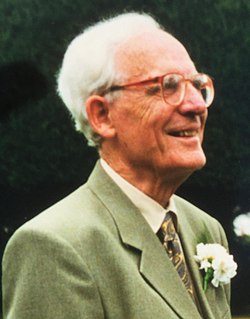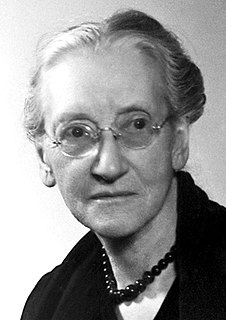A Quote by Walter Kasper
The religious wars showed that the Christian faith was no longer Europe's unifying force. A new common ground was needed, and it was found in reason, which is something that is shared by all of mankind. This was one of the roots of the Enlightenment and its concept of universal human rights.
Related Quotes
Is the Reformed faith opposed to human rights? Yes, very much so. It is not human rights but Divine law which is the foundation of liberty and the safeguard against tyranny. It is not something proceeding from man (rights), but something proceeding from God (revealed law) which is to order Christian society.
If I could leave this body with one wish, it would be that we never give up that search for common ground, .. The politics of common ground will not be found on the far right, or on the far left. That is not where most Americans live. We will only find it on the firm middle ground, based on common sense and shared values.
There is no longer a Christian mind ... the modern Christian has succumbed to secularization. He accepts religion - its morality, its worship, its spiritual culture; but he rejects the religious view of life, the view which sets all earthly issues within the context of the eternal, the view which relates all human problems social, political, cultural to the doctrinal foundations of the Christian Faith, the view which sees all things here below in terms of God's supremacy and earth's transitoriness, in terms of Heaven and Hell.
In Europe, the Enlightenment of the 18th century was seen as a battle against the desire of the Church to limit intellectual freedom, a battle against the Inquisition, a battle against religious censorship. And the victory of the Enlightenment in Europe was seen as pushing religion away from the center of power. In America, at the same time, the Enlightenment meant coming to a country where people were not going to persecute you by reason of your religion. So it meant a liberation into religion. In Europe, it was liberation out of religion.
There are those who argue that the concept of human rights is not applicable to all cultures. We in the National League for Democracy believe that human rights are of universal relevance. But even those who do not believe in human rights must certainly agree that the rule of law is most important. Without the rule of law there can be no peace.
Christian faith is exclusivistic. Christian faith lays claim upon our lives. The sanctity of life, what we do with a life, is very definitive in the Christian faith, what we do with sexuality, what we do with marriage, all of the fundamental questions of life have points of reference for answers, and people just have an aversion for that. That I think is the biggest reason they feel hostile towards the Christian faith.
As a young lawyer, I learned to try to find common ground with people, to look for a human connection. When I got to the Senate, despite the fact that there were a lot of people who didn't want me to get there - and were sure they'd never even talk to me, let alone work with me - I really tried to do the job I was sent there to do by the people of New York, which was to get things done for my constituents. I worked with Republicans, and we found a lot of common ground. It isn't easy, but it's part of what we have to do in politics today.
As a result of changes which, over the last century, have modified our empirically based pictures of the world and hence the moral value of many of its elements, the "human religious ideal" inclines to stress certain tendencies and to express itself in terms which seem, at first sight, no longer to coincide with the "christian religious ideal".
Deep religious beliefs stemming from the Old and New Testaments of the Bible inspired many of the early settlers of our country, providing them with the strength, character, convictions, and faith necessary to withstand great hardship and danger in this new and rugged land. These shared beliefs helped forge a sense of common purpose among the widely dispersed colonies - a sense of community which laid the foundation for the spirit of nationhood that was to develop in later decades.

































